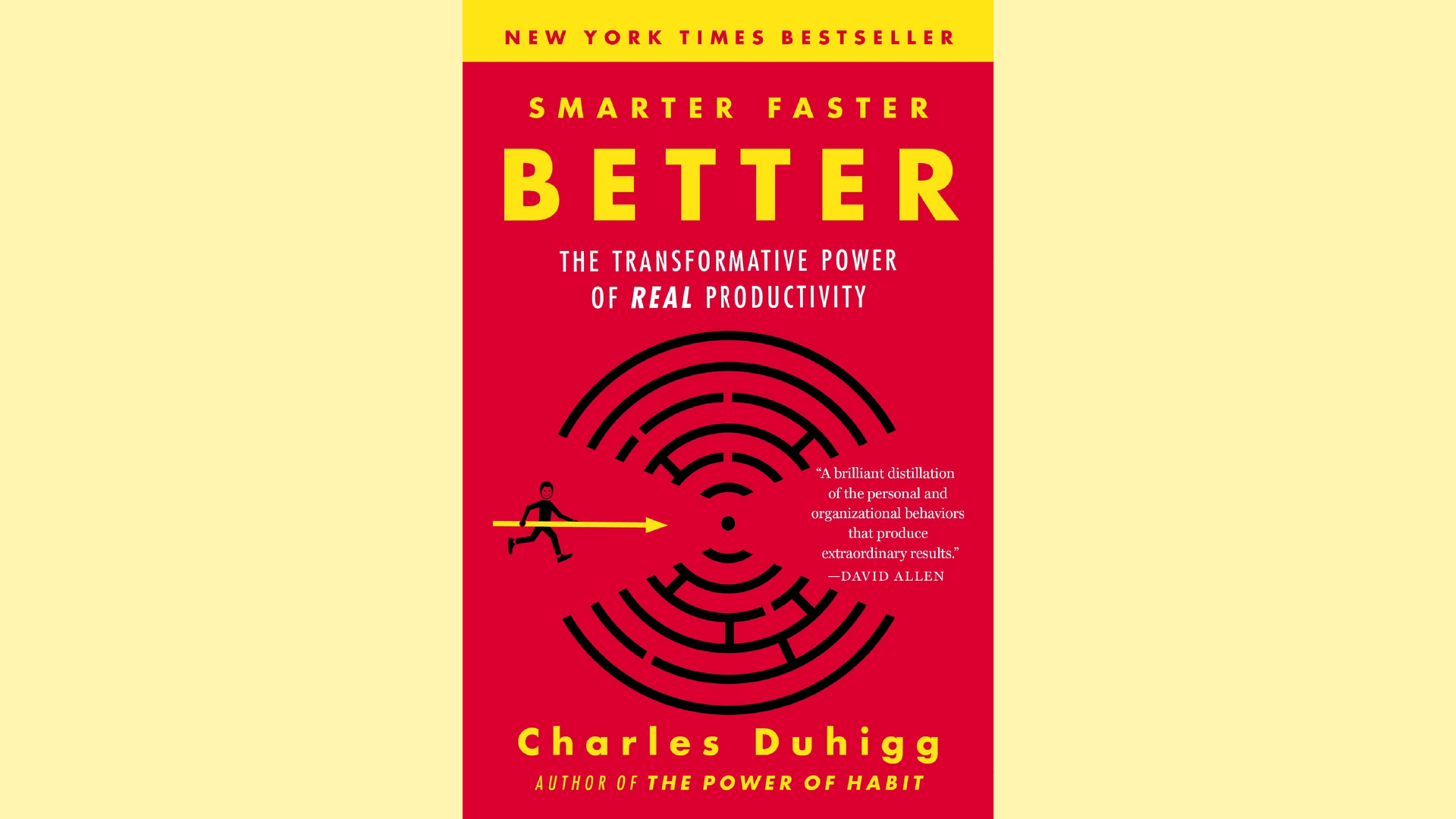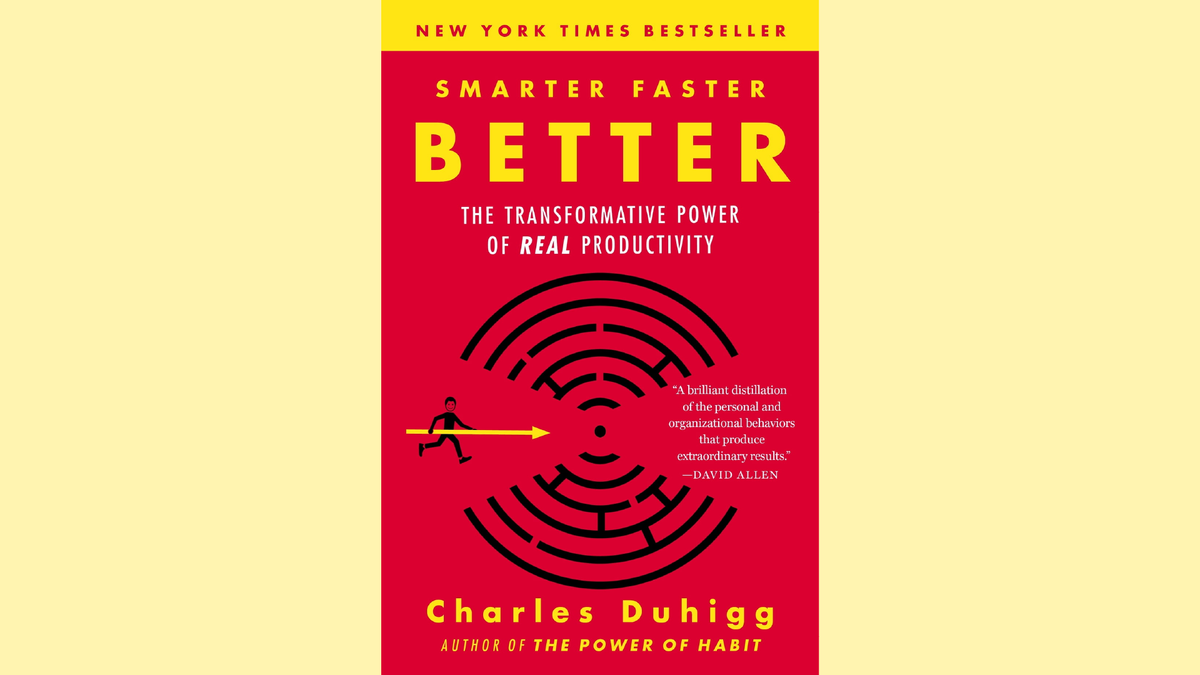Unleashing the Power of Mental Models in Entrepreneurship: A Guide to Making Smarter Decisions
Explore how mental models can revolutionize decision-making in entrepreneurship. This post delves into strategies from Charles Duhigg's "Smarter Faster Better," offering practical tools for navigating complex business landscapes and making informed, strategic choices under pressure.

In the fast-paced world of entrepreneurship, making quick, effective decisions under pressure isn't just an advantage; it's a necessity. Charles Duhigg's "Smarter Faster Better" spotlights a powerful tool that can significantly enhance decision-making: mental models. This concept, while rooted in cognitive psychology, offers practical insights for entrepreneurs navigating the complexities of the business landscape.

What Are Mental Models?
Mental models are frameworks that help us interpret and understand the world. They guide our perception and actions, enabling us to simplify complexities, predict outcomes, and confidently make decisions. Adopting these models can be a game-changer in entrepreneurship, where every decision can pivot a company towards success or failure.
"The key to making better decisions is to see yourself as a choice architect: to recognize the ways in which your biases and perceptions are influencing your thinking and to use this insight to choose differently." - Charles Duhigg.
The Entrepreneurial Edge: Strategic Decision-Making
Simplifying Complexity
Entrepreneurship involves a constant barrage of decisions, many of which are complex. Mental models serve as a toolkit for deconstructing these complex issues into more manageable components, allowing for a clearer path to resolution.
Predicting Outcomes with Greater Accuracy
By applying mental models, entrepreneurs can leverage historical data and proven methodologies to better predict the outcomes of their decisions. This predictive power is invaluable in a landscape where each choice can lead to vastly different futures.
Streamlining Efficiency
In a startup, time is a precious commodity. Mental models provide a structured approach to decision-making, significantly reducing the time it takes to navigate options and arrive at a conclusion. This efficiency can be the difference between seizing an opportunity and missing it entirely.
Reducing Cognitive Bias
Cognitive biases often influence our decisions, leading us astray. Mental models help counteract these biases by promoting a more objective and structured approach to problem-solving, ensuring that decisions are grounded in logic rather than fallacy.
Fostering Strategic Thinking
Strategic thinking is critical in entrepreneurship. Mental models encourage a forward-looking perspective, compelling entrepreneurs to consider the broader implications of their actions and plan accordingly.
Key Mental Models for Entrepreneurs
- The Pareto Principle (80/20 Rule) states that you should focus on the 20% of your efforts that will yield 80% of the results. This model helps prioritize tasks that have the most significant impact.
- First-principles thinking involves Breaking down complex problems into their most basic elements and building up from there. This approach encourages innovation and creative problem-solving.
- SWOT Analysis: Assess your business's Strengths, Weaknesses, Opportunities, and Threats to make informed strategic decisions.
- The OODA Loop: This model (Observe, Orient, Decide, Act) is essential for making quick, effective decisions in rapidly changing environments.
Implementing Mental Models in Your Entrepreneurial Journey
Integrating mental models into your decision-making process begins with awareness and practice. Start by familiarizing yourself with different models and applying them to everyday business challenges. Reflect on the outcomes, and refine your approach continuously.

Conclusion
For entrepreneurs, the journey is as unpredictable as it is exciting. Equipping yourself with diverse mental models can illuminate the path forward, turning uncertainty into opportunity. By fostering a mindset that values strategic thinking, efficiency, and objectivity, you're not just navigating the entrepreneurial landscape but shaping it.
Remember, the most successful entrepreneurs aren't just those with the best ideas—they're the ones who make the best decisions. Let mental models be your guide.
About Charles Duhigg
Charles Duhigg is an American journalist and non-fiction author, well-known for his books on habits and productivity. Born in 1974 in New Mexico, Duhigg earned a Bachelor of Arts in History from Yale University and an MBA from Harvard Business School. His career began in journalism, and he has written for several prestigious publications, including The New York Times.
Duhigg's work at The New York Times has been highly acclaimed. His investigative journalism has covered a wide range of topics, from the science of habit formation to the intricacies of business and economy, and contributed to the newspaper's winning the Pulitzer Prize for Explanatory Reporting in 2013 for a series on Apple's business practices.
Charles Duhigg is best known for his exploration of the science behind habit formation in his book "The Power of Habit: Why We Do What We Do in Life and Business," published in 2012. The book, which became a bestseller, delves into the psychology and neuroscience of habits, examining how they can be changed to improve personal and professional lives. Following the success of "The Power of Habit," Duhigg published "Smarter Faster Better: The Secrets of Being Productive in Life and Business" in 2016, which explores the science of productivity and how certain principles can make people and organizations more efficient and effective.
Through his books, Duhigg has become a leading voice in the fields of habit change, productivity, and the science of success. He has been featured in numerous media outlets and continues to speak on these topics, offering insights into how individuals and organizations can harness the power of habits and productivity principles to achieve their goals.


